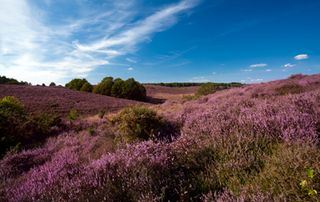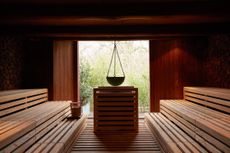Scottish landowners feel the heat
Landowners and reformists are at loggerheads about the future of the ownership of Scottish land


Scotland's landowners are a regular political Aunt Sally and the 2014 independence referendum presents critics with ample opportunity. Landowners are already feeling the heat from the Scottish Government's Land Reform Review Group, whose remit is to diversify ownership: its May interim report noted that 11 land transfers had been made in nine years and called for a quicker pace.
Now, historian Dr James Hunter has written in Scottish Field that landowners are awash with government grants and subsidies and nifty at wrapping their kingdoms in shady legal titles to duck proper taxation. He praises community ownership as a better model, quoting the eye-catching statistic that half of Scotland's privately owned land is controlled by only 432 owner bodies. Douglas McAdam, head of Scottish Land & Estates, says that Dr Hunter and his supporters ‘continually drag the debate backwards to their narrow agenda of wealth and property redistribution' and calls for a more constructive debate.

* Subscribe to Country Life; Country Life on Ipad
Individual landowners are also bristling. At a public meeting, Dr Hunter called for the takeover by the community of one Highland estate in the presence of the owner, Ross Peters. Citing his role in the £10 million private investment programme in Isle of Arran Distillers, Mr Peters points out: ‘We have created a valuable export. I have paid more in tax than I ever received in grants. Why should I hand over my land? Expropriation of land for political reasons is a form of Communism I hope we never adopt.' The group raises concerns over funding- communities seeking to take over local land have frequently failed for lack of money; although a Scottish Land Fund has been set up to launch aspiring landowning groups, it may be in conflict with EU State Aid rules.
The group also wonders whether the cost of land could be lowered; this could violate European Court of Human Rights legislation. The sustainability debate for land on the periphery appears fraught with the same difficulties debated during the Highland Clearances, when large-scale sheep farmers replaced subsistence smallholders.
Architect Lachie Stewart has been involved in creating new sporting lodges in an investment wave that has affected Highland estates no less than that seen in south-east England. Mr Stewart supports community ownership as an ideal, but adds that the pioneering visions of community bodies could face a dilemma with a new, less motivated generation.
* Follow Country Life magazine on Twitter
Sign up for the Country Life Newsletter
Exquisite houses, the beauty of Nature, and how to get the most from your life, straight to your inbox.
Country Life is unlike any other magazine: the only glossy weekly on the newsstand and the only magazine that has been guest-edited by HRH The King not once, but twice. It is a celebration of modern rural life and all its diverse joys and pleasures — that was first published in Queen Victoria's Diamond Jubilee year. Our eclectic mixture of witty and informative content — from the most up-to-date property news and commentary and a coveted glimpse inside some of the UK's best houses and gardens, to gardening, the arts and interior design, written by experts in their field — still cannot be found in print or online, anywhere else.
-
 How to disconnect from reality and feel like a new person in under 72 hours
How to disconnect from reality and feel like a new person in under 72 hoursOur round-up of the best British retreats that work wellness wonders in under 72 hours.
By Jennifer George Published
-
 Evenley Wood Garden: 'I didn't know a daffodil from a daisy! But being middle-aged, ignorant and obstinate, I persisted'
Evenley Wood Garden: 'I didn't know a daffodil from a daisy! But being middle-aged, ignorant and obstinate, I persisted'When Nicola Taylor took on her plantsman father’s flower-filled woodland, she knew more about horses than trees, but, as Tiffany Daneff discovers, that hasn’t stopped her from making a great success of the garden. Photographs by Clive Nichols.
By Tiffany Daneff Published
